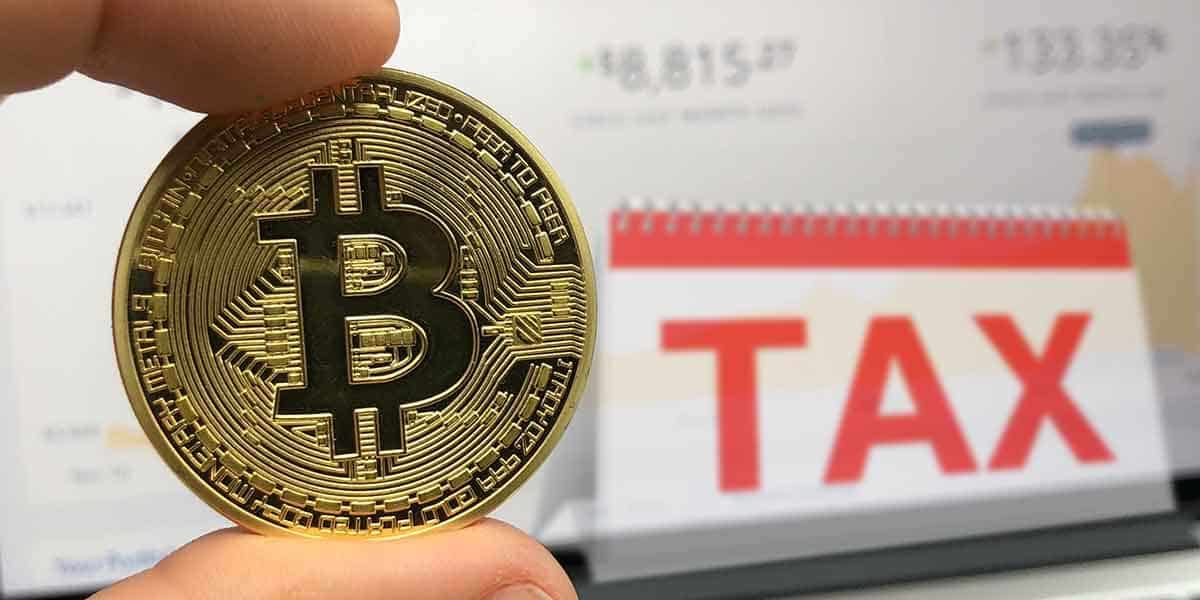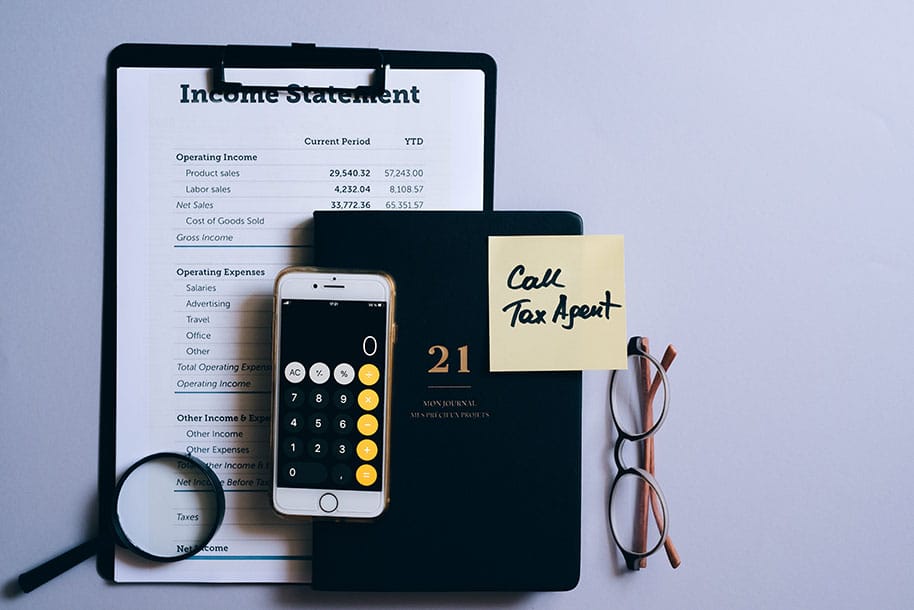Introduction: Cryptocurrency-Trading Businesses in Canada
Canadian cryptocurrency-trading businesses face unique challenges. The mostly unregulated market brings higher risk of fraud and cyber-crime. The volatile markets may bleed profits. And some cryptocurrency traders don’t even realize that they’re carrying on a business, misreporting their profits as capital gains.
This article aims to educate cryptocurrency traders on a fundamental income-tax issue: calculating the costs of their cryptocurrency inventory for tax purposes. This article first discusses how Canada’s tax system distinguishes a cryptocurrency-trading business, for which cryptocurrency is inventory, from a cryptocurrency investor, for whom cryptocurrency is a capital property. It then analyzes how a cryptocurrency-trading business should compute and claim its inventory costs for income-tax purposes. It concludes by offering pro tax tips for Canadian cryptocurrency-trading businesses.
Is Your Cryptocurrency Inventory? Trading vs. Investing
Canada’s Income Tax Act recognizes only two broad sorts of property for tax purposes:
- capital property, which creates a capital gain or loss upon disposition; and
- inventory, which figures into the computation of business income.
The type of income that the property generates upon sale—that is, capital gains or business income—determines whether that property is a capital property or inventory. In other words, one starts by determining the nature of the income and then characterizes the property, not the other way around. Hence, your profits from a cryptocurrency transaction will be treated as either (i) business income or (ii) a capital gain, and, if they are characterized as business income, your cryptocurrency units constitute inventory.
The income/capital distinction also comes with important tax implications. The full amount of business or property income is taxable, while only one-half of a capital gain is taxable. On the flip side, while only one-half of capital losses are deductible, one may fully deduct losses and expenses associated with business or investment activity.
Some cryptocurrency transactions straddle the line between income and capital. Canadian courts have indeed churned out a large body of case law wrestling with the ambiguity between investing, which produces a capital gain or loss, and trading, which results in business income or expenses. Courts assess a wide range of factors when deciding whether to characterize a transaction’s gains or losses as on an account of capital or income. Applied to cryptocurrency transactions, these factors may include:
- transaction frequency—e.g., a history of extensive buying and selling of cryptocurrency or of a quick turnover of cryptocurrency units might suggest a business;
- length of ownership—e.g., brief periods of holding the cryptocurrency indicate business dealings, not capital investing;
- knowledge of cryptocurrency markets—e.g., increased knowledge of or experience with cryptocurrency markets favours a business characterization;
- relationship to the taxpayer’s other work—e.g., if cryptocurrency transactions (or similar dealings) form a part of a taxpayer’s employment other business, it points toward business;
- time spent—e.g., a greater likelihood of characterization as a business if a substantial part of the taxpayer’s time is spent studying cryptocurrency markets and investigating potential purchases;
- financing—e.g., leveraged cryptocurrency transactions indicate a business; and
- advertising—e.g., increased likelihood of business characterization if the taxpayer has advertised or otherwise made it known that he deals in cryptocurrency.
Ultimately, the taxpayer’s motive or intent at the time of acquiring the cryptocurrency is the most important criterion that courts consider when determining whether the transaction produced a capital gain or business income. Still, to discern a taxpayer’s intention, courts will focus on the objective factors surrounding both the purchase and the sale of the cryptocurrency. In other words, courts will determine a taxpayer’s intent by evaluating the factors listed above.
Computing & Claiming Costs of Cryptocurrency Inventory for Income-Tax Purposes
Subsection 9(1) of Canada’s Income Tax Act codifies the deductibility of inventory costs by defining a taxpayer’s business income as the taxpayer’s “profit from that business.” When evaluating how a taxpayer went about computing profit, a court may ask whether a particular deduction agrees with generally accepted accounting principles (GAAP). But for income-tax purposes, the determination of a taxpayer’s profit is ultimately a legal question. In other words, while accounting principles and commercial practices may influence a court’s determination of whether a deduction was proper, those norms don’t comprise the operative legal criteria. In many cases, the Income Tax Act expressly ousts the use of otherwise acceptable accounting practices. So too have the courts.
That said, on the issue of computing inventory costs, Canada’s income-tax law mainly defers to commercial practice and generally accepted accounting principles (GAAP). For instance, commercial practice stipulates the use of accrual accounting for most businesses—especially those with high inventory turnover. As such, cryptocurrency-trading business will recognize inventory costs on an accrual basis, which means that the business doesn’t deduct the cost of cryptocurrency as an expense for the fiscal period in which the cryptocurrency was purchased. Instead, the business recognizes the inventory cost as an expense for the fiscal period in which the cryptocurrency was sold (i.e., cost of goods sold). For any cryptocurrency remaining on hand at the end of the fiscal period, the inventory at cost is recorded as an asset on the balance sheet for that period.
Cryptocurrency-trading businesses typically feature substantial inventory turnover. Thus, it’s neither possible nor desirable to keep a running tally of the cost of goods sold on a daily basis. So, the only feasible way of determining the cost of goods sold is to (i) determine the sum of the value of inventory on hand at the beginning of the tax year and the cost of the inventory purchased during the year and then (ii) subtract the value of the inventory on hand at the end of the year.
This accounting exercise gives us the following formula:
Cost of Goods Sold = Opening Inventory + Acquisitions – Closing Inventory
If inventory costs remain stable, the formula presents little trouble. If prices fluctuate, problems arise. For example: At the beginning of the year, a cryptocurrency-trading business has on hand 10,000 units of a particular coin with a current price of $1.00 per coin. At the end of the year, the business has on hand 10,000 units of the same coin with a current price of $4.00 per coin. During the year, the business traded 100,000 cryptocurrency units in the same coin, the price of which steadily increased as the business bought and sold cryptocurrency units each month. It’s impossible to say whether the 10,000 units in closing inventory are the same units as those in the opening inventory, or whether some or none from the opening inventory remain.
Hence, the computation of cost of goods sold involves two steps: The first is valuation, the second tracing.
Inventory Valuation
Valuation refers to the method by which you assign an overall cost (or value) to the opening inventory and the closing inventory. Canada’s Income Tax Act permits two general methods of valuing inventory:
- valuation at the lower of cost and fair market value for each item of inventory; or
- valuation of the entire inventory at fair market value.
A taxpayer may choose between these two methods and must use it consistently thereafter. (If the taxpayer wishes to switch, the Canada Revenue Agency must first give its permission.) Moreover, the Income Tax Act requires that the value of a business’s opening inventory equal the value of the business’s closing inventory from the immediately preceding year. So, the value of a taxpayer’s closing inventory determines the value of the taxpayer’s opening inventory for the following year.
Inventory Tracing
Tracing refers to the method by which you determine which goods comprise the closing inventory and how much those goods cost. Canada’s income-tax law permits two methods of tracing: (1) averaging and (2) first in, first out (FIFO). Averaging assumes that the cost of each unit in closing inventory and of goods sold during the year equals the average cost of all units in opening inventory and of all units purchased during the year. FIFO allocates the most recent costs to closing inventory and the oldest costs to goods sold during the year. The assumption is that the goods sold were those first purchased—hence, first in, first out.
A third tracing GAAP method—last in, first out (LIFO)—also exists. LIFO makes the opposite assumption as that made by FIFO, and it thus allocates the oldest costs to closing inventory and the most recent costs to goods sold during the year. Canadian courts have rejected its legitimacy, however. Thus, Canadian cryptocurrency-trading businesses cannot use LIFO for income-tax purposes. This is an example of Canada’s income-tax law expressly ousting the use of otherwise acceptable accounting practices.
Pro Tax Tips: Record-Keeping, Cryptocurrency Tax Audits, Voluntary Disclosures Program & Solicitor-Client Privilege
A cryptocurrency-trading business that lacks proper records will fare poorly during a CRA cryptocurrency tax audit. If selected for a cryptocurrency tax audit by the Canada Revenue Agency, a Canadian cryptocurrency trader will typically receive a 13-page cryptocurrency-audit questionnaire, which includes over 50 questions on a range of topics, such as:
- The timeline of owing or using cryptocurrency;
- The source of the cryptocurrencies purchased;
- The use of third-party exchange wallets;
- The source of funds used to purchase cryptocurrency;
- Transaction record-keeping practices of the taxpayer;
- Participation in initial coin offerings (ICOs);
- Whether any cryptocurrency holdings generate passive income for the taxpayer (e.g., Node, Masternodes, Supernodes, etc.);
- Participation in cryptocurrency mining (including questions about the sort of mining hardware used and energy expenses related to mining);
- Acceptance of cryptocurrency as payment for goods or services;
- The frequency of cryptocurrency transactions; and
- The time spent studying cryptocurrency markets.
The taxpayer must also turn over bank-account statements and any other records allowing the Canada Revenue Agency’s tax auditor to verify the taxpayer’s answers.
Cryptocurrency traders must therefore keep records of their cryptocurrency transactions. If you use a cryptocurrency exchange, you should periodically export your transaction information to avoid losing it. (Many cryptocurrency traders found themselves suddenly without any records when the Canadian cryptocurrency exchange QuadrigaCX imploded.) You should also maintain the following records about your cryptocurrency transactions:
- The date of each transaction;
- Any receipts for purchasing or transferring cryptocurrency;
- The value of the cryptocurrency in Canadian dollars at the time of the transaction;
- The digital-wallet records and cryptocurrency addresses;
- A description of the transaction and of the other party (e.g., the other party’s cryptocurrency address);
- The exchange records;
- Records relating to any accounting and legal costs; and
- Records relating to any software costs for managing your tax affairs.
If you mine cryptocurrency, you should keep the following records in addition to your cryptocurrency-transaction records:
- Receipts for purchasing cryptocurrency-mining hardware;
- Receipts for expenses associated with your cryptocurrency-mining operation (e.g., power costs, mining-pool fees, maintenance costs);
- Records about your cryptocurrency-mining operation (e.g., hardware specifications, hardware operation time); and
- The mining pool details and records.
Our Certified Specialist Canadian tax lawyer can provide advice about record-keeping and proper reporting of your cryptocurrency profits to ensure that CRA doesn’t fault you for misrepresenting the information in your tax returns. You may, for example, benefit from a tax memorandum examining whether your cryptocurrency profits should be reported as capital gains or as business income or as a blend of both. It is also important to remember that an intermediate transaction—e.g., purchasing Bitcoin for the sole purpose of acquiring a trading pair—may itself give rise to a taxable transaction.
Since forming an international coalition aimed at cryptocurrency transactions, the Canada Revenue Agency, the Internal Revenue Service, and other tax administrators have fine-tuned the strategies allowing them to identify cryptocurrency users for tax audit or prosecute them for tax evasion. The advances and cooperative efforts of tax authorities signal the end of the anonymity that cryptocurrency users thought they once enjoyed. This should definitely concern Canadian taxpayers with unreported profits from cryptocurrency transactions. If you filed tax returns that omitted or underreported your cryptocurrency profits, you risk facing not only civil monetary penalties, such as gross-negligence penalties, but also criminal liability for tax evasion.
You may qualify for relief under the CRA’s Voluntary Disclosures Program (VDP). If your VDP application qualifies, the CRA will renounce criminal prosecution and waive gross-negligence penalties (and may reduce interest). A voluntary-disclosure application is time-sensitive, however. The CRA’s Voluntary Disclosures Program will reject an application—and thus deny any relief—unless the application is “voluntary.” This essentially means that the VDP must receive your voluntary-disclosure application before the CRA contacts you about the non-compliance you sought to disclose. Our experienced Canadian tax lawyers have dealt with many Canadian taxpayers involved with cryptocurrency and can carefully plan and promptly prepare your voluntary-disclosure application. A properly prepared disclosure application not only increases the odds that the CRA will accept your disclosure but also lays the groundwork for a judicial-review application to the Federal Court should the CRA unfairly deny your disclosure.
To determine whether you qualify for the Voluntary Disclosures Program, schedule a confidential and privileged consultation with one of our expert Canadian tax lawyers. The Canada Revenue Agency cannot compel the production of information protected by solicitor-client privilege. In other words, solicitor-client privilege prevents the CRA from learning about the legal advice that you received from your tax lawyer. Your communications with an accountant, however, remain unprotected unless the accountant has been retained on your behalf by a Canadian tax lawyer. So, if you seek cryptocurrency tax Canada advice but want to keep that information away from the CRA, you should approach a Canadian tax lawyer first. If an accountant is needed, your Canadian tax lawyer will retain the accountant on your behalf and extend the privilege.



